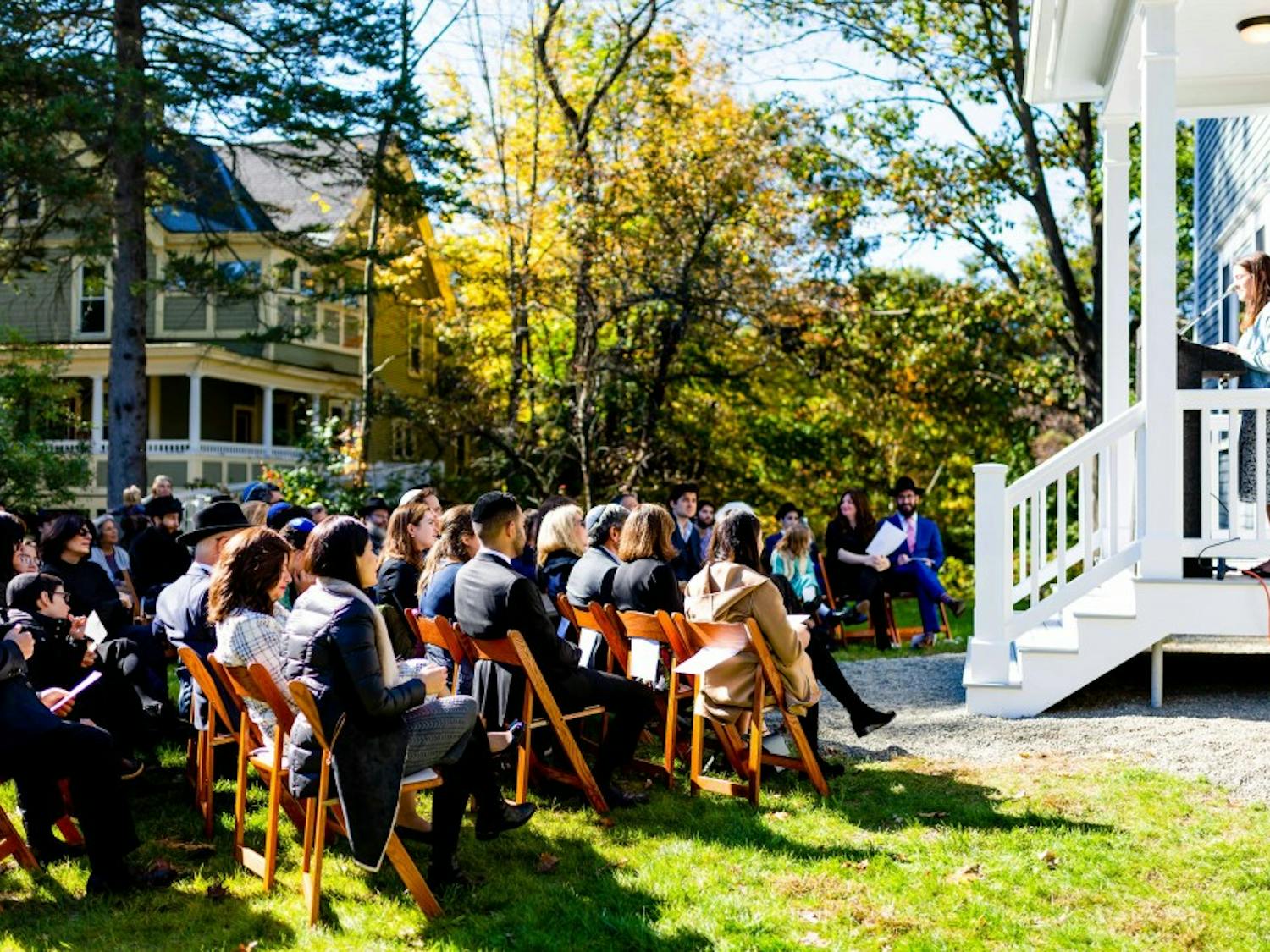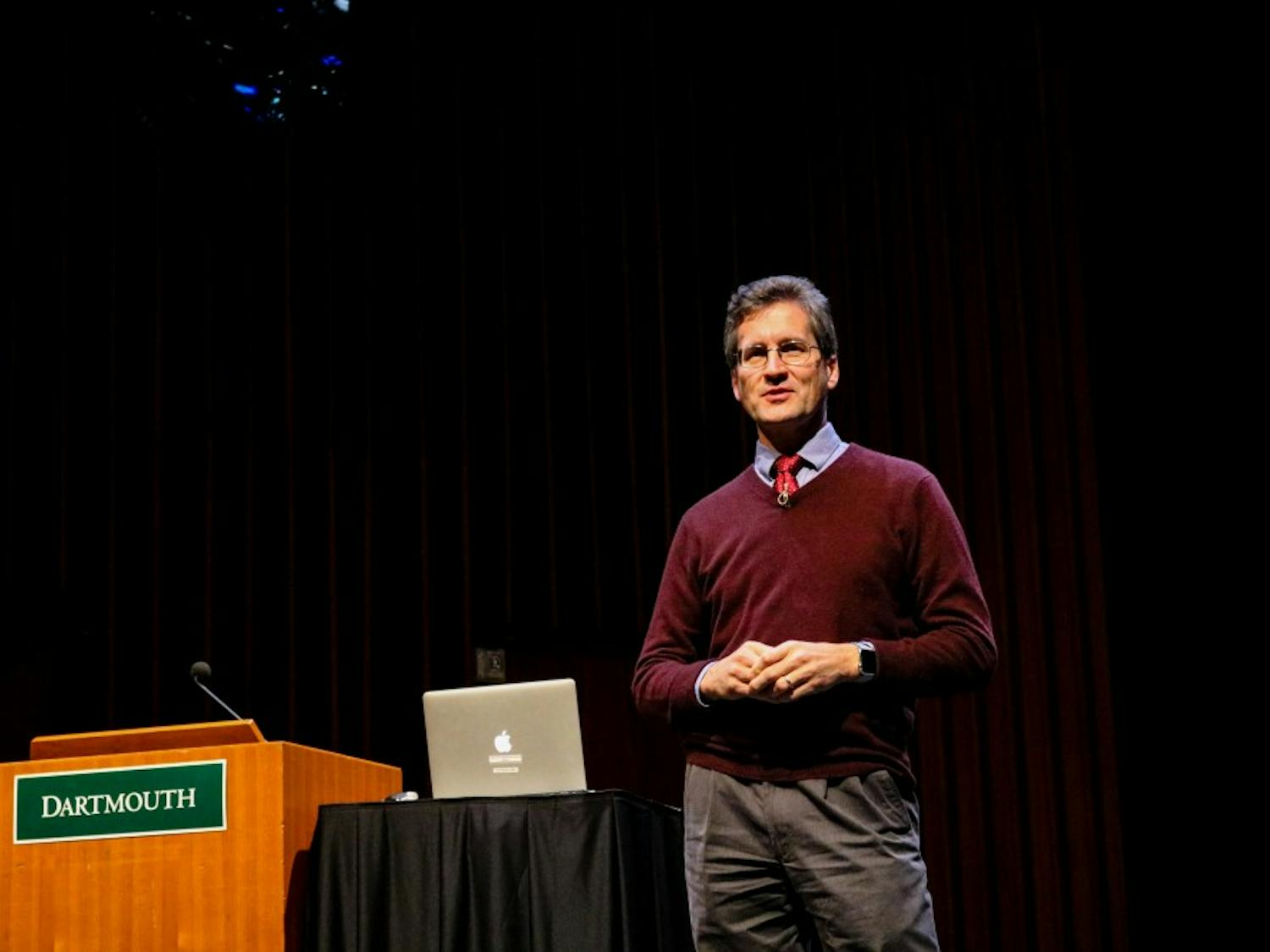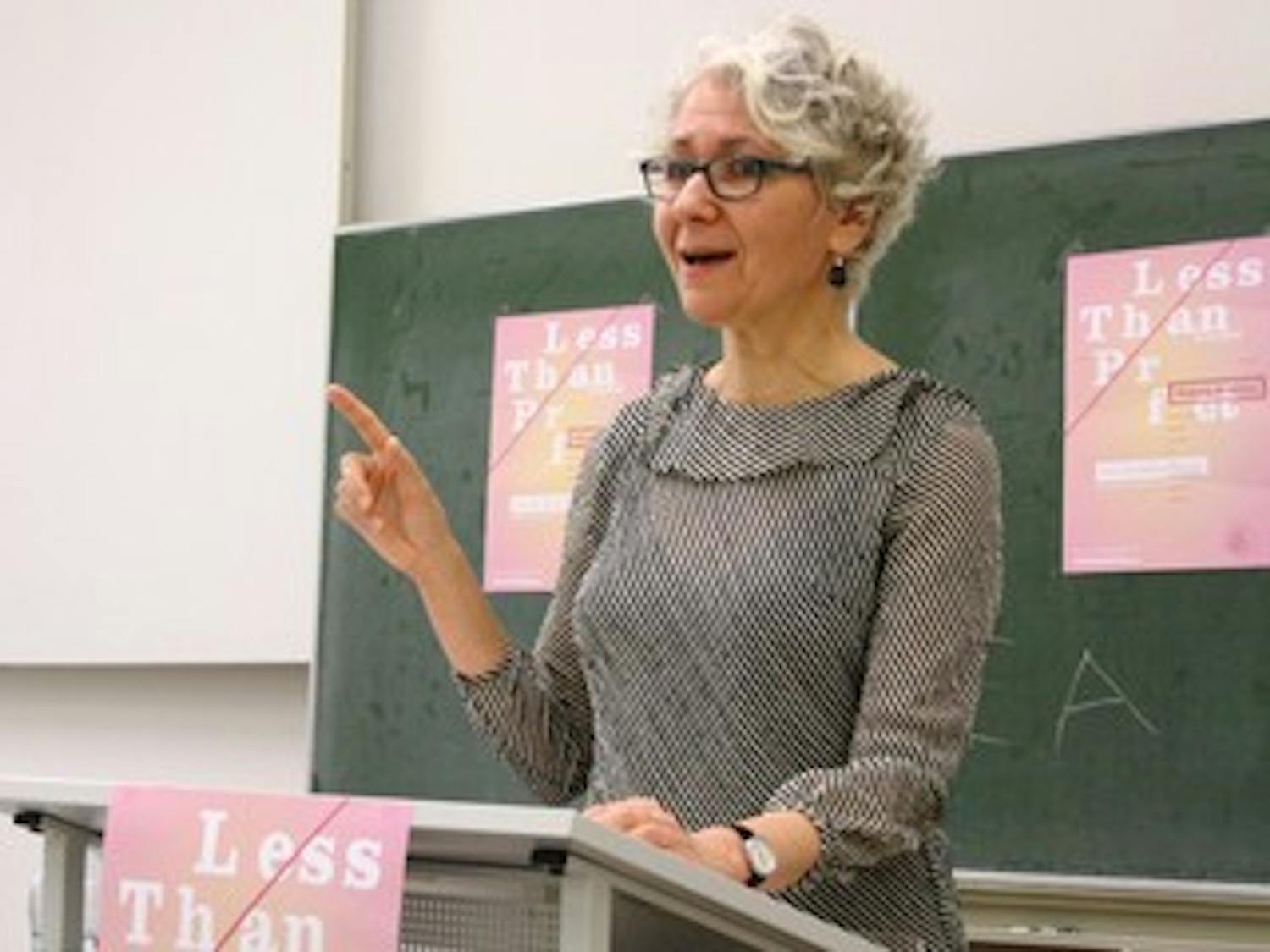Chabad opens new house worth $3.2 million
Chabad at Dartmouth now has a new place in Hanover to call home. On Oct. 14, the Hilary Chana Chabad House — located two blocks from the Green at 19 Allen Street — opened the doors of its new 9,000-square-foot building with a weekend of festivities that culminated in a dedication ceremony on Sunday. The grand opening included remarks by Chabad Rabbi Moshe Gray and other prominent figures in the College’s Jewish community, student speeches, and a ribbon-cutting ceremony, as well as presentations to George and Pamela Rohr, Sue Ann Arnall and Robert and Debbie Ezrapour, who helped fund the $3.2 million purchase and renovation of the new house.






